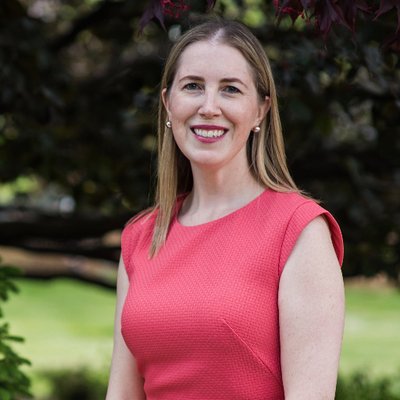
University of Guelph infectious diseases expert Prof. Amy Greer, Department of Population Medicine, has been awarded a Minister of Colleges and Universities Award of Excellence by Minister Ross Romano.
The award recognizes Greer’s dedication to the local community, post-secondary students and the broader post-secondary sector during the pandemic.
Since the beginning of the COVID-19 outbreak, Greer’s research has focused on the modelling and epidemiology of the disease. She has also been collecting vital data to better understand the attitudes and behaviours of Canadians during the pandemic.
“In addition to my usual research work, I have also committed to using my voice as a scientist to communicate important developments and information to the public,” said Greer, Canada Research Chair in Population Disease Modelling.
“I have tried to actively use the available data to support evidence-based decision-making within the post-secondary setting by advocating for reopening plans that keep our students, faculty and staff as safe as possible.”
Frequently quoted by the media throughout the pandemic, Greer cautioned against easing physical distancing measures in May, when she was a guest on CBC Radio’s Quirks and Quarks.
“As a scientist, I was never trained in the area of risk communication or advocacy work,” she said. “But it seems like this is much of the work that I am doing right now. As this pandemic has continued to unfold, it has become clear that people need to hear from scientists directly to help to make sense of the information and misinformation that they are seeing in so many different forums.”
Greer had a head start in understanding how a pandemic may play out in Canada. In 2013, she co-authored a paper that looked at how the country would manage a pandemic caused by a highly transmissible virus, specifically with no available pharmaceutical defense.
“At the time, those results very clearly showed that if the virus was highly transmissible, aggressive physical distancing would be required for long periods of time and would require high levels of compliance,” she said. “There was a lot of push back about that because people were convinced that it would be nearly impossible to do in practice.”
Greer said she has learned that Canadians have shown themselves to be capable of extraordinary things. The vast majority made significant sacrifices to get to a relatively stable situation by early summer.
“But we are starting to find ourselves on a somewhat different trajectory right now, which suggests that compliance is waning,” she said. “We need to really figure out how best to engage the groups that are currently driving our fall resurgence, like young adults.”
Shaming people is not helpful, she added. What would be helpful is to engage social scientists to help us better understand how to motivate groups to creatively replace high-risk behaviours.
Greer added that receiving an award for her work in supporting the local community, post-secondary students and the broader sector is special.
“I am pleased that people have found my contributions to these discussions helpful.”
Contact:
Prof. Amy Greer
agreer@uoguelph.ca